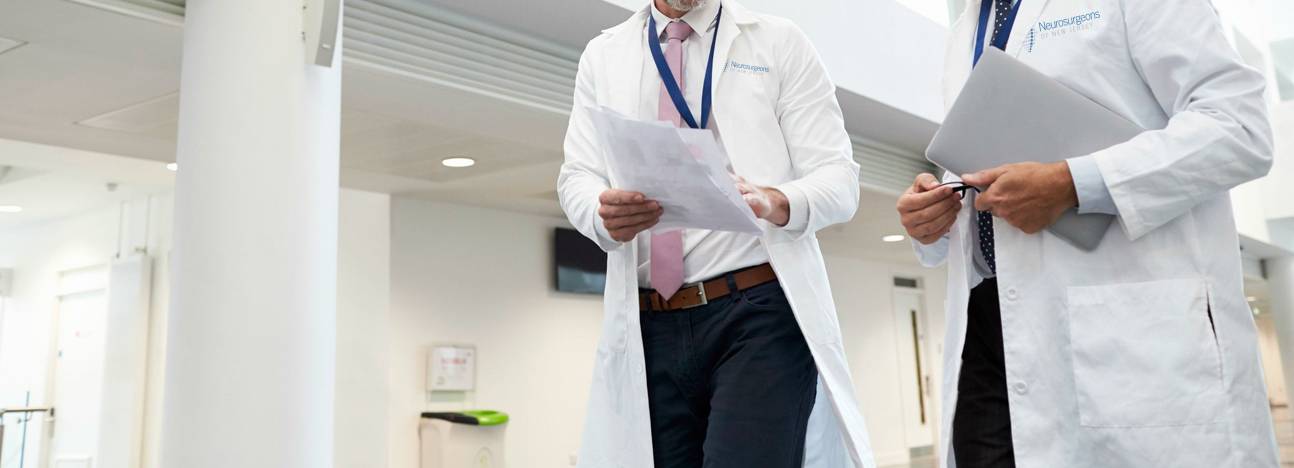As a surgeon, it is my job to do everything within my power to make my patients feel better. Yes, that means performing an operation to help heal the body, but everything that happens before the actual procedure is just as important. When you are my patient, your comfort is paramount. Why? You are already in a stressed state – you are dealing with a metastatic brain cancer diagnosis.
I’m going to use my specialized training to remove the tumor. Your job is to focus on recovery. If you are too stressed, it can slow down your body’s natural healing processes, which is the opposite of what we want for you.
As far as I’m concerned, it is up to me to help you feel more comfortable and at ease with the process. That peace of mind will be a powerful healing tool following surgery, and the very fact that you are self-educating and learning more about your condition proves you are receptive to the idea.
Now let’s discuss a few thoughts that may have crossed your mind. You may be surprised that others have the same concerns. Don’t be. There are many other people who have gone through metastatic brain cancer treatment, and you are not alone in this experience.
“I just received my metastatic brain cancer diagnosis and have to see a surgeon. I’m nervous about what he might say.”
I’d like you to realize that nervousness is perfectly natural and nothing to feel self-conscious about. Let me tell you what I would say to someone in that situation to give you an idea of what to expect.
First, we will discuss your treatment options, depending upon the characteristics of your own metastatic brain cancer. The goal of surgery is strictly to remove the bulk of the tumor, or the mass of the tumor, often to reduce pressure in the brain. I always emphasize that every surgery requires radiation to fully remove cancer cells and that the surgery itself is not the final treatment.
Next, I want to let you know that this is not a one-man job – an entire team will be guiding you through the treatment process. This includes me, the neurosurgeon, as well as the oncologist, radiation oncologist, nurses and so on. We will all communicate and work together to ensure that you receive the care you need.
Finally, expect to be met with enthusiasm. That may sound bizarre, but let’s talk about why. Metastatic brain cancer sounds serious and scary, but treatments now are much better than they were 15 to 20 years ago in terms of controlling cancer in the brain. There is hope, and it’s our job to share that hope with you by exuding confidence.
We know what we are doing, and believe it or not, we are excited to treat metastatic brain cancer. I want to share that excitement with you and help you to look at your treatment and recovery with an optimistic attitude. It goes back to the idea of reducing stress and improving healing, and if I can help you have a positive outlook, that is exactly what I am going to do.
“I am really scared about the idea of brain surgery.”
Your team will completely understand your apprehension about having surgery, particularly surgery that involves the brain. You might be surprised to learn that nearly all patients are scared that, after surgery, they are not going to know who they are or who their family is. They also fear that they won’t be “normal” anymore.
Sometimes patients think of this as a death sentence, so to speak, and are apprehensive about going in for surgery at all. You might feel that you prefer to just go for radiation, but that isn’t always the best course of action.
You may also have worries in the back of your mind about the surgery causing personality changes, loss of the ability to walk or talk, or any other deficits you don’t have before the procedure. Remember, our treatment goal is to make things better, not worse. If surgery is too risky and would probably cause issues, we will not move forward with it.
Remember, we are here for you.
Metastatic brain cancer sounds scary. There is no doubt about it. That’s why, before I help heal you, it’s my job to alleviate some of your fears. If you still have concerns about your condition or your upcoming treatment, bring them up with a member of your health care team. We want you to be comfortable and confident before, during and after your treatment.
If I leave you with just one thing, it is to remain positive. Never lose hope. Metastatic brain cancer is very treatable, typically with good outcomes. Our understanding of your condition and the technologies we use to treat it have come a long way over the past two decades.
You might worry at times. You might be afraid. That is our nature, as human beings, when we face adversity. However, know that you are not facing this alone. You have a supportive team of health care professionals, whose goal is to make you better, and they will be with you every step of the way. It’s their job, it’s my job and it’s one of the reasons we do what we do.


